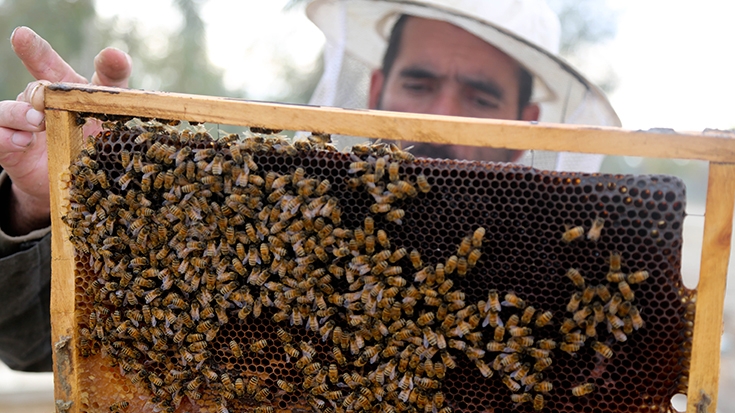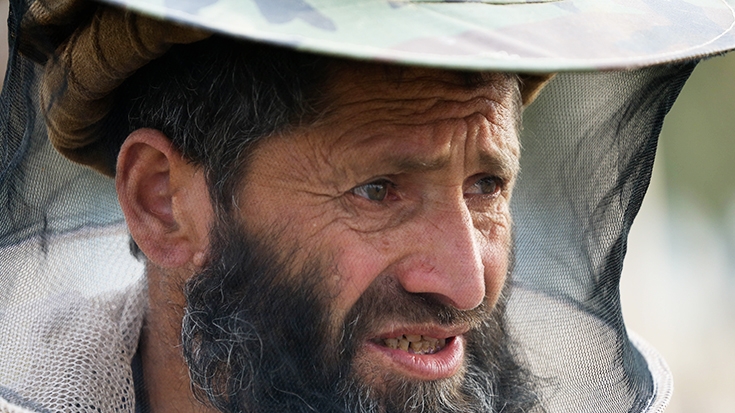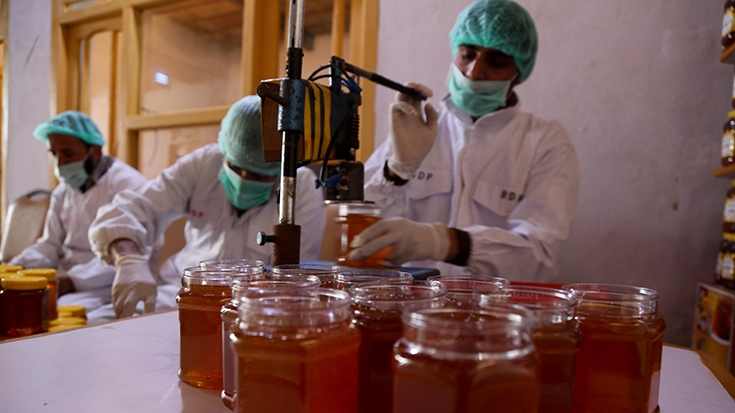JALALABAD CITY, Nangarhar Province – Despite a long history of beekeeping and honey production, Afghanistan’s eastern provinces have only recently received recognition for their honey production. With support from the Afghanistan Rural Enterprise Development Program (AREDP), Afghan beekeepers are now getting credit for their honey within Afghanistan.
According to beekeepers in Nangarhar, they would, in the past, collect honey from the hives and then ship it to neighboring Pakistan for processing, i.e., to purify and bottle the honey and, often, the shipments ended up in Pakistani markets.
“Most of the honey was transported to Pakistan and sold at a very low price,” says Ashuqullah, 36, the director of Season Corporation, the only company to produce, purify and package honey in Nangarhar Province.
Season Corporation is based in Jalalabad city, the provincial capital, and has branches in Herat, Kabul, and Mazar-e-Sharif cities. “During the first year or two, our operations were uncoordinated and we had no knowledge of how to run a business,” Ashuqullah says. “The AREDP supported us and provided us with exposure visits to India, where we learned how to produce, process, and properly package honey. This was the starting point, where we learned the importance of this business and how to run it effectively.”
Started in 2010, AREDP works towards strengthening market linkages and value chains for rural enterprises by providing technical support to 1,400 Enterprise Groups (63 percent female) and over 500 (14 percent female) Small Medium Enterprises that have been selected for their potential as key drivers of rural employment and income generation.
AREDP, implemented by the Ministry of Rural Rehabilitation and Development and supported by the World Bank and Afghanistan Reconstruction Trust Fund (ARTF), also seeks to enhance economic mobilization and activities by organizing the rural poor into Savings Groups, Village Savings & Loan Associations and Enterprise Groups.



